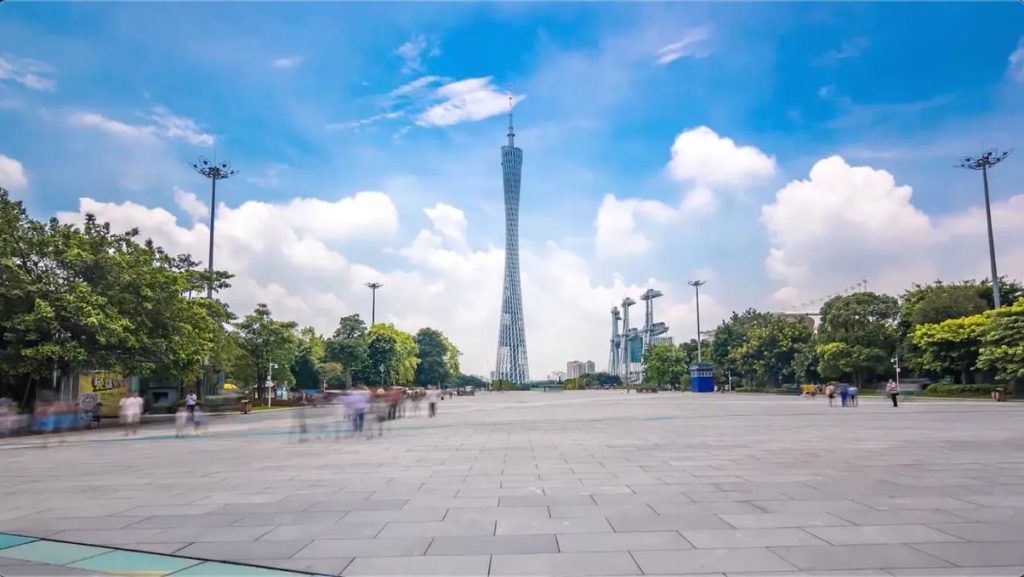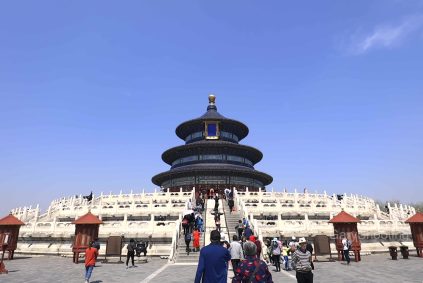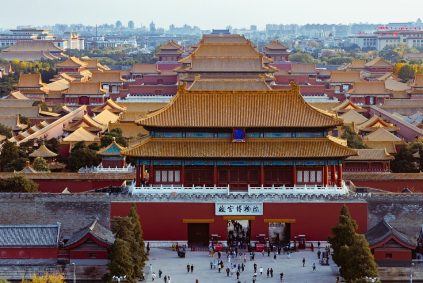広州の産業遺産を探索する: 市内のトップ製造およびイノベーション拠点へのガイド
広州, 何世紀にもわたる産業革新の歴史を持つ世界的な貿易拠点, 歴史ある工場が魅力的に融合している, 近代的な生産設備, 伝統的な製造センターからテクノロジー主導の大都市への進化を強調するクリエイティブハブ. これらのアトラクションは、繊維などの分野の進歩を紹介しながら、都市の経済変革についての洞察を提供します。, 自動車工学, そしてデジタル技術. 広州で必見の産業観光スポットは次のとおりです.
歴史ある製造現場: 広州の産業ルーツの名残
十三工場地区: カントンの世界貿易発祥の地
歴史的な埠頭に近い珠江沿いに位置, この地域は、かつて清朝の広東制度の時代には外国資本の工場や倉庫があった場所です。 (1757–1842). 当初の建造物はほとんど残っていないものの、, この地区の博物館や復元された建物は、1 世紀以上にわたり中国の唯一の合法貿易港としての役割を物語っています。. 訪問者は、絹がどのように作られるかを詳しく説明するインタラクティブな展示を探索できます。, 磁器, とお茶は輸出用に生産されていました, ヨーロッパの商人によって導入された機械化された織機や印刷機の台頭も同様です。. ガイド付きツアーには、布地に使用される伝統的なブロックプリント技術の実演が含まれることがよくあります。, 過去の方法を現代の繊維生産に結び付ける.広州紡績産業遺産公園: 手織り機からハイテク工場まで
この公園は 20 世紀の綿工場を再利用したものです, 広州の繊維産業の進化を辿る機械と作業場を保存する. ビンテージの回転ジェニーが並ぶホールを散策, 力織機, そして染色槽, 業界がどのように手作業から自動プロセスに移行したかを説明する情報パネルも付いています. このサイトでは工業化が社会に与える影響についても強調しています。, 労働者寮や共同食堂に関する展示あり. 週末には, 地元の職人がこのスペースを使用して、デジタル刺繍などの現代テキスタイルアートを披露しています。, 歴史ある技術と最先端のデザインの橋渡し.
最新の生産設備: イノベーションの実践
広州汽車グループ (GAC) ビジターセンター: 中国の自動車産業を垣間見る
大規模な工場見学の場合は事前調整が必要な場合がありますが、, GAC のビジター センターでは、広州の自動車製造をわかりやすく紹介しています。. インタラクティブなディスプレイで組立ラインのプロセスを説明, 金属パネルのプレス加工からハイブリッドモデルへの電池の搭載まで. 管理されたデモエリアで車のフレームを溶接するロボットを見学し、自動運転技術の研究について学ぶことができます。. センターのデザインスタジオではコンセプトカーを展示, 広州を拠点とするエンジニアが嶺南の建築にインスピレーションを得た文化的な美学と空気力学をどのように融合させているかを強調. エンジニアが Q を主催する不定期の営業日を確認する&自動車生産におけるサステナビリティへの取り組みに関するセッション.番禺宝石加工区: 貴金属加工の芸術と科学
広州中心部の南にあるいくつかの村にまたがる, このゾーンはジュエリーのデザインと製造の拠点です, ゴールドに特化したワークショップを併設, 翡翠, そして真珠の職人技. 多くのスタジオでは、職人がフィリグリー象嵌やレーザー彫刻などの技術を使用して原材料を複雑な作品に変える様子を見学できる少人数のグループを歓迎しています。. デモンストレーションでは、伝統的なモチーフの融合が強調されることがよくあります (鳳凰や蓮の花など) モダンなミニマリストスタイル. 一部の施設では、業界における宝石の倫理的な調達とリサイクル慣行についても説明しています。, 環境問題に取り組みながら世界のジュエリートレンドを形成する広州の役割を反映.
クリエイティブでテクノロジー主導のスペース: 産業とイノベーションが出会う場所
T.I.Tクリエイティブパーク: 繊維工場からデジタルイノベーションハブへ
1950 年代の繊維工場を改装した建物内にあります, この公園は現在、テクノロジー関連のスタートアップ企業を受け入れています, デザインスタジオ, および文化施設, 知識ベースの経済への広州の移行を象徴する. アートインスタレーションとして再利用され、保存された産業機械が並ぶ中庭を散策, クライミングフレームに改造された巨大織機など. 起業家が物流やスマート製造のためのアプリを開発するコワーキング スペースを訪問する, 3D プリントされたプロトタイプや AI によって生成されたアートを展示するポップアップ展示会に参加することもできます. 公園内のカフェやギャラリーでは、持続可能な都市計画や工場におけるロボットの未来などのテーマに関するトークが頻繁に開催されます。, 専門家と好奇心旺盛な訪問者が集まります.広州科学城: ハイテク産業エコシステム
市中心部の北東にあるこの広大な地区には研究機関が集まっています, バイオテクノロジー研究所, 航空宇宙工学や新エネルギーなどの分野に重点を置いた先進的な製造工場. 一部施設の利用を制限しておりますが、, サイエンス シティの公共エリアには、材料科学の画期的な進歩を説明するインタラクティブな科学センターが含まれています (例えば, グラフェンの製造) そしてロボット工学. 屋外展示には、農業監視や災害救援に使用されるドローンのプロトタイプが展示されています, 地元のエンジニアがデザインした太陽光発電のストリートファニチャーと並んで. この地区の緑地では毎年テクノロジー フェスティバルが開催され、大学や企業が産業イノベーションをデモンストレーションします。, スマートグリッドシステムから自動運転配送車まで.
再利用された産業用アーキテクチャ: 適応的再利用のランドマーク
レッドトリー アート アンド デザイン ファクトリー: クリエイティブ産業のためのキャンバス
かつては缶詰工場だった, レッドトリーの錆色の倉庫には現在ギャラリーが入っています, ファッションスタジオ, そして独立系映画館, 産業遺跡を文化的ホットスポットに変えるという広州のトレンドを体現する. 街の製造業の歴史を称える落書きが並ぶ廊下を散策, デザイナーがコンベヤー ベルトや金属ドラムなどの工場再生材料から家具を作成するアトリエを訪問します。. 複合施設の中央の中庭では、手作り品を販売するマーケットが頻繁に開催されます, 陶器の食器からアップサイクルの衣類まで, 生産と消費の両方における持続可能性への取り組みを反映.広州鉄道文化園区: 機関車製造の遺産を守る
歴史ある車両基地に隣接, この公園は、20 世紀初頭の中国の鉄道拡張における広州の役割を記念しています。. ビンテージの蒸気エンジンやディーゼル機関車が、その建設に使用された工具とともに展示されています, 市の工場が国鉄網の部品をどのように生産したかを詳しく説明する銘板が飾られている. 交通機関の産業化について説明する博物館, 初の中国製機関車の組み立てから高速鉄道技術の開発まで. インタラクティブな展示により、訪問者は列車信号システムの操作をシミュレーションしたり、鉄道模型を設計したりできます, 家族連れや歴史愛好家にも同様に魅力的です.
広州の産業観光地は進歩のダイナミックな物語を提供する, この都市の製造業遺産への郷愁と、世界的なイノベーションのリーダーとしての未来への興奮が混ざり合う. 古代の交易ネットワークに驚くかどうか, ロボット組立ラインの観察, または工場を再利用したアーティストのスタジオを探索する, 訪問者は、この活気に満ちた大都市の文化的および経済的アイデンティティが産業によってどのように形成され、またそれによって形成されているかについてより深い理解を得ることができます。. 営業時間とツアーの空き状況を常に確認してください, 一部の施設では季節限定のスケジュールが設定されている場合や、グループでの予約が必要な場合があります。.
















